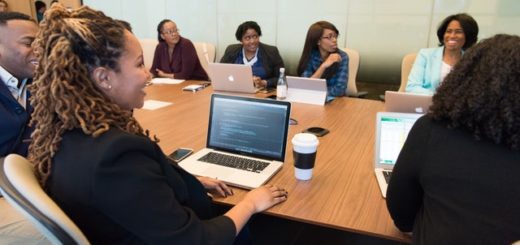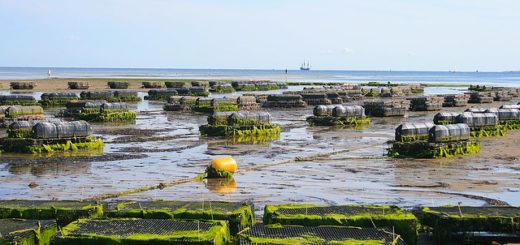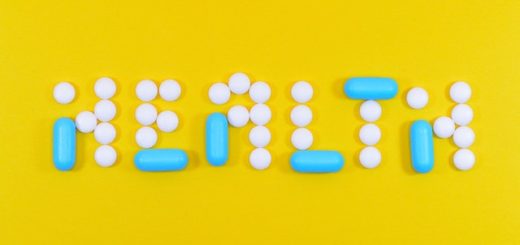Consultant Needed for Research on the Socio-Economic Cost Implications of FGM/C at Micro-Level
COVAW is National women’s rights NGO that works towards a society that is free from all forms of violence against women and girls. COVAW’s mission is to champion the rights of women and girls to be free from all forms of violence.
Since its inception in 1995, COVAW has invested in empowering women and girls to claim their rights, enabling equitable access to services, resources and opportunities; facilitating greater access to justice for survivors of Sexual and Gender Based Violence (SGBV); and supporting change agents opposed to and committed to eradication of all forms of VAWG. COVAW’s interventions deliberately address norms, attitudes, laws, policies and practices that affect women and girls’ safety and wellbeing in general. This is done through implementation of gender progressive practices and supporting the development of regulatory and institutional frameworks. Additionally, COVAW fosters consistent engagement with different actors to prevent and respond to Violence Against Women and Girls (VAWG) and to hold perpetrators of these violations accountable. Our key stakeholders are the community, civil society, government and the private sector.
COVAW is guided by its core values of respect, integrity, solidarity and commitment in improving the lives of its primary beneficiaries – women and girls.
Project Description
COVAW with support from Mannion Daniels is implementing a two-year project titled *‘Leveraging on FGM Movements to enhance SRHR Rights’ covering 5 counties namely: Narok (Transmara West-Masurura, Kawai, Osupuko and Kerinkani Villages; Transmara East-Takitech, Kabolecho and Chilani Villages), Meru, Migori, Samburu and Nairobi Counties. The project seeks to achieve the following objectives:
- Transform social norms surrounding knowledge, attitudes, and practices of Female Genital Mutilation/Cutting (FGM/C).
- Strengthen the capacity and effectiveness of grassroots and civil society organizations working on FGM/C
- Lobby for the prioritization of ending FGM/C as a development agenda supported by a convincing cost-benefit analysis
- Create stronger and more inclusive movements to eradicate FGM/C.
More information about the project can be accessed through this link.
Purpose of The Consultancy
The aim of the consultancy is to conduct a study on the socio-economic cost implications of FGM/C at micro-level, (household and community) in Masurura location, Transmara West Sub County, Narok County. The research will also analyze the socio-economic benefits or not, for the households and communities practicing the cut.
Background
Although FGM in Kenya has been on a decline (32% in 2003 and 21% in 2014[1]), in Narok, 78 % of women/girls have undergone FGC, as compared to the national average of 21%. Two thirds of them undergo the cut at 10-14 years, but some as early as five years (KDHS 2014). The high prevalence of FGC in Narok, strongly contributes to low educational attainment with literacy levels 40% below the national average and ranking of 42/47 in completion of secondary education. FGC is closely linked to early child bearing – 40% of women and girls are reported to begin their child bearing between 15-19 years.**
Despite well-intentioned intervention to address FGC in Narok by COVAW and other players, the practice remains highly prevalent within households and communities. This calls for an in-depth review and understanding of what informs the socio-economic decisions of the households and communities that choose to maintain the status quo.
FGM has no health benefits and causes only harm. Women and girls who are subjected to FGM are at risk of both short- and long-term negative health consequences – including for their physical, sexual, mental, and social well-being. The direct financial cost of treating the negative health complications caused by FGM can span generations, starting as early as childbirth. This puts a significant economic burden on health systems and national budgets, especially in countries with rates of FGM greater than 10%. (WHO)
FGC continues to pose a socio–economic burden on the women, girls, families and communities, an immediate risk to the health of the girl and has ongoing health and social effects throughout a girl’s life, e.g. risk of child marriage and pregnancy, with complications during birth. Furthermore, uncut girls and women face stigma from their family and wider community, as FGC is often linked to eligibility for marriage. This pressure from those around them has led to some women “choosing” to undergo FGC as adults.
Research objectives
The broad objective of the research is to understand the social and economic costs of FGM/C at micro-level, (household and community) in Narok County. The research will also develop key messages to be used for anti-FGC campaigns and derive 2 fact sheets from the research. This is to build a knowledge base upon which key conversations, key messages and facts are authoritatively shared with the key actors of the project i.e. community, county government officers and civil society organizations which will be anchored on while implementing and at completion of the project.
Specific Objectives
- To understand the socio-economic costs of FGM/C at households and communities level in the target areas
- To derive key messages from the research to be used for anti-FGC campaigns
- To develop 2 fact sheets from the research
Research Methodology
The research methodology proposed by the consultant(s) should include a suitable sampling strategy, participatory tools and a suitable mix of quantitative and qualitative data collection methods. The analysis of participatory qualitative data collection should be well presented and focus on (a) how stakeholders, grassroots organizations and “beneficiaries” perceive the cost implications of FGC/M (social, economic and health).
Data collection, analytical methods, and presentation of findings, conclusions, and recommendations should be sensitive to and differentiate relevant gender, age, diversity dimensions and other relevant markers to allow precise analysis as to the implication on girls and boys, in different locations, and on different age groups and stakeholders throughout the studies.
Documented consent using the COVAW consent form template should be taken where respondents have to be interviewed, or their pictures have to be taken or any other information retrieved from them.
Deliverables and Timelines.
The required consultancy deliverables are;
- One detailed inception report including a time bound outline of the research, detailed work plan, detailed methodology for both data collection and analysis, sample size calculations, data collection tools
- A comprehensive report on the findings including accurately analyzed data against the evaluation questions, lessons learned and recommendations.
- An inclusive brief on the key messages from the research to be used for anti-FGC campaigns
- 2 fact sheets from the research
- All typed datasets from both quantitative and qualitative data collections.
The consultant will also be responsible for,
- Holding an inception meeting (remotely if required) with COVAW staff and reviewing any relevant documentation to gather background information
- Drafting an inception report (as above) – Incorporating feedback on inception report into planned approach and activities
- Organizing the field travel in collaboration with the COVAW team
- Conduct training for enumerators including pretesting and prepare for fieldwork
- Supervising and quality assuring field data collection and entry
- Analyzing and synthesizing both qualitative and quantitative data and preparing a report
- Submitting draft reports, with accompanying data analysis to COVAW contact staff for feedback
- Incorporating feedback and submitting a final report which provides evidence based findings that respond to the projects key objectives, as well as specific, useable and tailored recommendations which can be directly applied to COVAW’s programming
- Providing the typed raw data to COVAW contact staff
COVAW will be responsible for,
- Availing all necessary project documents to the consultant
- Holding an inception meeting with the consultant to provide background information and to finalize the research work-plan, timelines and expectations
- Provide oversight for data collection.
- Reviewing the inception report and data collection tools and providing the consultant with specific and timely feedback
- Facilitating access to the respondents who may include FGM/C survivors, local administration, village elders, relevant county offices, cultural leaders, religious leaders, , married men and women, single men and women, girls and boys, TBAs, grassroots organization within the area of coverage and select community in project areas
- Reviewing the draft research report and providing the consultant with specific and timely feedback
- Managing and supporting the consultant throughout the survey process
- Approving the final research report
Reporting and Dissemination Plan Research Report
The consultant must submit two bound copies and a soft copy of the final research report which is expected to be within 40 pages (without annexes) and with the following components:
- Preliminary Pages (Title page, Table of Contents including a list of annexes, Acknowledgement, Executive Summary, List of Acronyms and Abbreviations, Definition of Terms and Concepts)
- Introduction describing the project’s background and context
- A description of the program, including the results framework and theory of change
- Purpose and Objectives of Research
- Key research questions or objectives and a statement of the scope of the research, with information on limitations and delimitations
- An overview of the research approach, methodology and data sources
- Research findings
- Conclusion based on research findings
- Recommendations based on research findings
- Lessons learned and good practices based on the research findings
- Appendices
Skills and Qualifications of Consultant
Education
Bachelor’s degree in Social Sciences, Economics (with experience on gender work), Human Rights, Research, or related field.
Required Experiences and Skills
- At least 5 years’ experience in dealing with conducting research/surveys on gender economics, human rights/SGBV issues.
- Good understanding of SGBV, FGM/C, Human Rights and Social norms.
- Excellent knowledge on movements
- Proven research and report writing skills and facilitation experience.
- High level of professionalism and ethics
[1] Kenya Demographic Health Survey 2014
How to apply
Interested consultants/firms must submit the following documents:
- Technical proposal which must include the following:
1) Proposed program and methodology to be used for the research not more than 5 pages
2) Consultants past experience in thematic area, supported by hard or soft copies of relevant reports.
3) Financial proposal (budget) in MS Excel in Kenya Shillings.
- CV of applicant with contact details for 3 referees; if applicant intends to work in a team, she/he should indicate all team members and attach CVs. Clearly highlight the team leader.
- Samples of previous related work undertaken.
All documents must be submitted not later than 5.00pm, Wednesday 30th June 2021 via email to recruit@covaw.or.ke with the subject: ‘RESEARCH ON THE SOCIO-ECONOMIC COST IMPLICATIONS OF FGM/C AT MICRO-LEVEL IN NAROK COUNTY’








